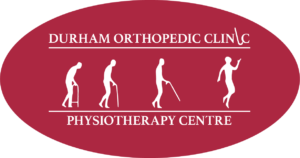Temporomandibular joint (TMJ) disorders affect the joints and muscles that control jaw movement, leading to pain and dysfunction. These disorders can be debilitating, impacting daily activities such as eating, speaking, and even sleeping. Physiotherapy offers effective treatment options to manage and alleviate TMJ symptoms.
Understanding Temporomandibular Joint Disorders
What are TMJ Disorders? The temporomandibular joints connect the jawbone to the skull and are responsible for the movement needed for chewing, speaking, and yawning. TMJ disorders encompass a range of conditions that cause pain and dysfunction in these joints and the surrounding muscles.
Causes of TMJ Disorders TMJ disorders can result from various factors, including:
- Injury or trauma to the jaw or head.
- Arthritis affecting the TMJ.
- Teeth grinding or clenching (bruxism).
- Misalignment of the teeth or jaw.
- Stress, which can lead to muscle tension and jaw clenching.
- Poor posture, especially in the neck and upper back.
Symptoms of TMJ Disorders Common symptoms include:
- Jaw pain or tenderness.
- Pain in or around the ear.
- Difficulty or discomfort while chewing.
- Locking of the jaw joint.
- Clicking or popping sounds when opening or closing the mouth.
- Headaches or neck pain.
How Physiotherapy Can Help
Physiotherapy plays a crucial role in the management and treatment of TMJ disorders. Here are some ways physiotherapy can provide relief:
Pain Relief Techniques
Manual Therapy Manual therapy involves hands-on techniques to improve joint mobility and reduce muscle tension. Techniques such as joint mobilizations and soft tissue massage can help alleviate pain and improve function.
Heat and Cold Therapy Applying heat can relax muscles and improve blood flow, while cold therapy can reduce inflammation and numb pain. Physiotherapists often incorporate these treatments as part of a comprehensive pain management plan.
Electrotherapy Modalities like TENS (Transcutaneous Electrical Nerve Stimulation) can be used to provide pain relief by sending electrical impulses to the affected area.
Improving Jaw Mobility and Function
Exercises for Jaw Movement Physiotherapists design specific exercises to improve jaw mobility and strengthen the muscles around the TMJ. These exercises can help restore normal function and reduce stiffness.
Postural Correction Poor posture can contribute to TMJ disorders. Physiotherapists provide guidance on improving posture, particularly focusing on the neck and upper back, to reduce strain on the jaw.
Stretching and Relaxation Techniques Stretching exercises and relaxation techniques, such as deep breathing and progressive muscle relaxation, can help reduce muscle tension and improve jaw function.
Addressing Contributing Factors
Education and Lifestyle Modifications Physiotherapists educate patients about the factors that contribute to TMJ disorders and provide strategies to manage them. This may include advice on avoiding hard or chewy foods, practicing good posture, and managing stress.
Ergonomic Assessments Assessing and modifying the patient’s work or home environment to promote better posture and reduce strain on the TMJ can be beneficial.
Long-Term Management and Prevention
Custom Treatment Plans Physiotherapists develop individualized treatment plans based on the patient’s specific needs and the underlying causes of their TMJ disorder. This personalized approach ensures effective and sustainable relief.
Regular Follow-Ups Ongoing follow-up appointments help monitor progress, make necessary adjustments to the treatment plan, and ensure the patient continues to improve and prevent recurrence.
Temporomandibular joint disorders can significantly impact daily life, but physiotherapy offers a range of effective treatments to manage and alleviate symptoms. Through pain relief techniques, exercises to improve jaw mobility, postural correction, and addressing contributing factors, physiotherapists can help patients achieve lasting relief and better jaw function.
If you are experiencing symptoms of TMJ disorders, contact a physiotherapist at the Durham Orthopedic and Sports Injury Clinic at 905-428-7800, to develop a personalized treatment plan tailored to your needs. With the right approach, you can find relief from jaw pain and improve your quality of life.


